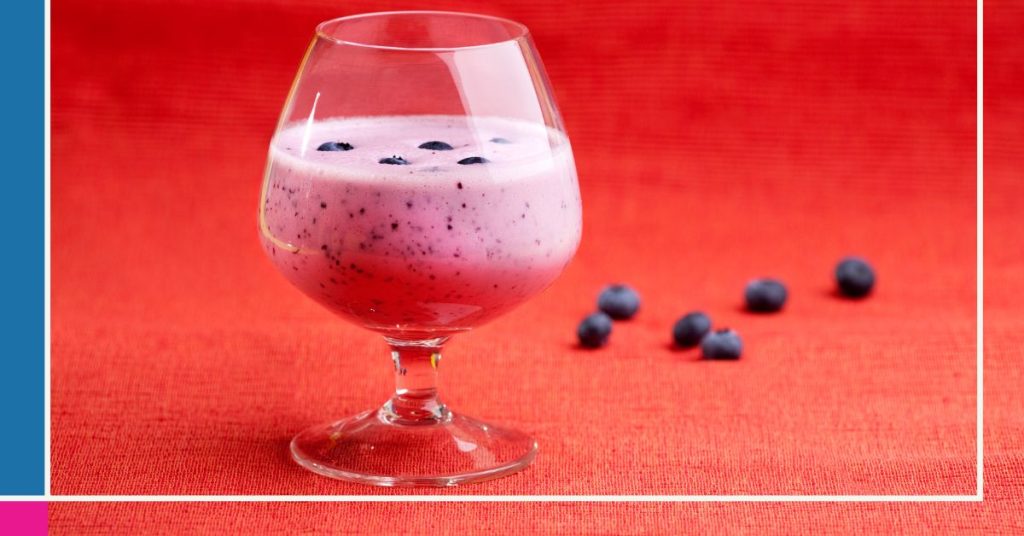Trail Running Nutrition Mistakes
Proper nutrition is a cornerstone for any trail runner, significantly influencing performance and overall well-being. For midlife runners, understanding the nuances of trail running nutrition becomes even more critical. A well-balanced diet tailored to the unique demands of trail running can enhance endurance, speed up recovery, and reduce the risk of injuries.
The goal of this article is to help midlife runners navigate and avoid common trail running nutrition mistakes. By identifying and correcting these errors, you can optimize your diet to support your running goals and improve your overall health. Whether you’re just starting out or have been running trails for years, knowing what to eat and when can make a substantial difference in how you feel and perform on the trails.
Proper trail running nutrition is not just about avoiding pitfalls; it’s about fostering resilience and joy in your running journey. With the right nutritional strategies, you can conquer personal hurdles and redefine your health and happiness. Let’s dive into the essential tips to ensure your nutrition supports your trail running adventures, keeping you energized and ready to tackle any terrain.
Understanding the Basics of Trail Running Nutrition
Trail running nutrition is about more than just fueling your run; it’s about providing your body with the essential nutrients it needs to perform optimally and recover effectively. The primary components of a balanced trail running diet include carbohydrates, proteins, fats, vitamins, and minerals.
Carbohydrates are the main source of energy for runners. They fuel your muscles during intense activity and help maintain stamina. Incorporate complex carbs like whole grains, fruits, and vegetables into your diet for sustained energy.
Proteins are crucial for muscle repair and recovery. They help rebuild muscle fibers that break down during long runs. Good sources of protein include lean meats, dairy products, beans, and nuts.
Fats provide a longer-lasting energy source and support cell function. Healthy fats, such as those found in avocados, nuts, seeds, and olive oil, should be part of your diet.
Vitamins and minerals are essential for overall health and optimal performance. They support various bodily functions, from energy production to bone health. Ensure you get a variety of nutrients by eating a colorful array of fruits and vegetables.
Hydration is equally important. Dehydration can severely impact performance and recovery. Drink water regularly throughout the day and consider electrolyte-rich drinks during long runs to replenish lost salts.
For midlife runners, nutritional needs might differ. As we age, our bodies may require more protein for muscle maintenance and recovery. Antioxidants and anti-inflammatory foods, like berries and leafy greens, become even more important to combat increased oxidative stress and inflammation. Tailoring your diet to include these essentials can enhance your trail running experience and overall health.
Common Trail Running Nutrition Mistakes
Even experienced trail runners can fall into common nutrition traps that sabotage their performance. Here are some frequent mistakes and how to avoid them:
Inadequate Hydration
One of the most common mistakes is not drinking enough water. Dehydration can lead to fatigue, cramps, and decreased performance. For example, if you start a run already dehydrated, you’ll likely feel sluggish and struggle to maintain your pace. To avoid this, drink water consistently throughout the day and use electrolyte drinks during long runs to replace lost salts.
Poor Meal Timing
Eating too close to your run or not eating at all can cause issues. If you eat a heavy meal right before running, you might experience stomach cramps or nausea. Conversely, running on an empty stomach can lead to low energy levels and dizziness. Aim to eat a balanced meal with carbohydrates, proteins, and fats about 2-3 hours before your run. If you need a snack closer to your run, opt for something light and easy to digest, like a banana or a handful of nuts.
Insufficient Calorie Intake
Not consuming enough calories can hinder performance and recovery. For instance, if you’re running long distances but not eating enough, your body won’t have the fuel it needs to perform well and recover afterward. Ensure you’re eating enough to meet your energy demands, including ample carbs for energy, protein for muscle repair, and fats for sustained energy.
Avoiding these common nutrition mistakes involves planning and awareness. Hydrate well, time your meals properly, and ensure you’re consuming enough calories to support your activity levels. These simple adjustments can lead to significant improvements in your trail running performance and recovery.
Tailoring Nutrition for Midlife Runners
As we age, our nutritional needs evolve, particularly for those over 40 who are engaged in trail running. Adapting your diet to meet these changing requirements is crucial for maintaining performance and overall health.
Protein for Muscle Maintenance and Recovery
For midlife runners, protein becomes increasingly important. Muscle mass tends to decrease with age, and running places significant demands on your muscles. Consuming adequate protein helps maintain muscle mass and supports recovery after intense workouts. Aim for high-quality protein sources such as lean meats, fish, eggs, dairy products, legumes, and nuts. Including protein in every meal can help sustain muscle health and repair tissues effectively.
Antioxidants and Anti-Inflammatory Foods
Oxidative stress and inflammation can increase with age, affecting recovery and overall well-being. Antioxidants play a vital role in neutralizing free radicals, which can damage cells and tissues. Incorporate a variety of colorful fruits and vegetables, such as berries, oranges, spinach, and kale, into your diet. These foods are rich in vitamins C and E, which are powerful antioxidants.
Anti-inflammatory foods are also essential. Foods rich in omega-3 fatty acids, like salmon, flaxseeds, and walnuts, can help reduce inflammation. Incorporating turmeric and ginger into your meals can also provide anti-inflammatory benefits, aiding in quicker recovery and reducing muscle soreness.
Tailoring Your Diet
For midlife runners, a well-rounded diet tailored to your age-specific needs is key. Ensure you’re getting enough protein to support muscle health, and load up on antioxidants and anti-inflammatory foods to combat the effects of aging and intense physical activity. By making these adjustments, you can continue to enjoy trail running with vitality and resilience.
Pre-Run Nutrition Strategies
Proper pre-run nutrition is essential for maximizing performance and ensuring you have the energy to tackle the trails. Here are some strategies to fuel your body effectively before a run.
Optimal Foods and Timing
It’s best to eat a balanced meal 2-3 hours before your run. This meal should include carbohydrates for energy, protein for muscle support, and fats for sustained energy. For example, a meal of oatmeal topped with banana slices and a spoonful of almond butter provides a good mix of nutrients.
Balanced Pre-Run Meals and Snacks
If you need a snack closer to your run, about 30-60 minutes before, opt for something light and easily digestible. Some excellent pre-run snacks include a banana, a slice of whole-grain toast with honey, or a small handful of nuts. These options provide quick energy without weighing you down.
Importance of Hydration
Hydration is just as crucial as the food you eat. Start hydrating well before your run by drinking water consistently throughout the day. About 30 minutes before you head out, drink a glass of water to ensure you’re adequately hydrated. For longer runs, consider a sports drink to maintain electrolyte balance.
By choosing the right foods and timing your meals properly, you can ensure your body is well-fueled and ready for an optimal trail running experience.
Nutrition During the Run
Fueling during long runs is crucial to maintain energy levels and prevent fatigue. Proper in-run nutrition ensures you can sustain your performance and recover more efficiently.
Importance of Fueling During Long Runs
During extended trail runs, your body depletes its glycogen stores. Without replenishing these energy reserves, you may experience a drop in performance and endurance. Consuming easily digestible snacks can help maintain your energy levels and keep you going strong.
Easily Digestible Snacks and Drinks
Opt for snacks that are quick to digest and provide a steady release of energy. Some great options include energy gels, chews, or bars specifically designed for endurance sports. Dried fruits like apricots or dates and small pieces of bananas are also excellent choices. Additionally, sports drinks can provide both hydration and energy through their carbohydrate content.
Role of Electrolytes
Electrolytes, such as sodium, potassium, and magnesium, are vital for maintaining fluid balance and preventing cramps. During long runs, you lose electrolytes through sweat, and it’s important to replenish them. Sports drinks and electrolyte tablets or powders can help maintain this balance. For natural options, consider sipping coconut water, which is rich in potassium, or eating salted snacks.
By incorporating these in-run nutrition strategies, you can sustain your energy, improve your performance, and enjoy a more effective trail running experience.
Post-Run Nutrition for Recovery
Proper post-run nutrition is vital for replenishing glycogen stores and repairing muscles. Consuming the right foods and drinks after a run can significantly enhance your recovery and prepare you for your next workout.
Replenishing Glycogen Stores and Repairing Muscles
After a run, your body’s glycogen stores are depleted, and your muscles need protein to repair and rebuild. Consuming a combination of carbohydrates and protein within 30-60 minutes after your run is optimal for recovery.
Optimal Foods and Drinks for Recovery
A balanced post-run meal should include both carbohydrates and protein. Some great options are:
- A smoothie made with fruits (for carbs) and Greek yogurt or protein powder (for protein).
- A turkey or chicken sandwich on whole-grain bread.
- A bowl of quinoa or brown rice with vegetables and lean meat.
- Low-fat chocolate milk, which provides a good carb-to-protein ratio.
For drinks, water is essential for rehydration, but adding an electrolyte drink can help replenish lost minerals.
Timing and Portion Recommendations
Aim to consume 20-30 grams of protein and a substantial amount of carbohydrates within an hour of completing your run. This timing helps maximize glycogen replenishment and muscle repair. Additionally, keep hydrating throughout the day to replace any fluids lost during your run.
By prioritizing post-run nutrition, you can enhance your recovery, reduce muscle soreness, and improve your performance for future runs.
Q&A: Common Questions about Trail Running Nutrition
Q: How much water should I drink during a trail run?
A: Hydration needs vary, but a good rule of thumb is to drink about 4-6 ounces of water every 20 minutes. Adjust based on the weather, your sweat rate, and the intensity of your run. For runs over an hour, consider an electrolyte drink to replace lost salts.
Q: What are some quick and portable snacks for trail runs?
A: Energy gels, chews, dried fruits (like apricots or dates), bananas, and energy bars are excellent choices. These snacks are easy to carry and provide quick energy.
Q: How soon after a run should I eat?
A: Aim to eat within 30-60 minutes post-run to optimize recovery. A mix of carbohydrates and protein is ideal for replenishing glycogen stores and repairing muscles.
Including this Q&A section can help address specific concerns and provide practical tips for better trail running nutrition.
Conclusion
Proper nutrition is a critical component of successful trail running. By understanding the basics of trail running nutrition, avoiding common mistakes, and tailoring your diet to your age-specific needs, you can enhance your performance and recovery. Ensuring you fuel adequately before, during, and after your runs will help maintain energy levels, support muscle repair, and keep you hydrated.
Remember, avoiding pitfalls like inadequate hydration, poor meal timing, and insufficient calorie intake can make a significant difference in your running experience. Implementing these trail running nutrition tips will not only improve your performance but also contribute to your overall health and well-being. Embrace these strategies to conquer the trails with confidence and resilience.





